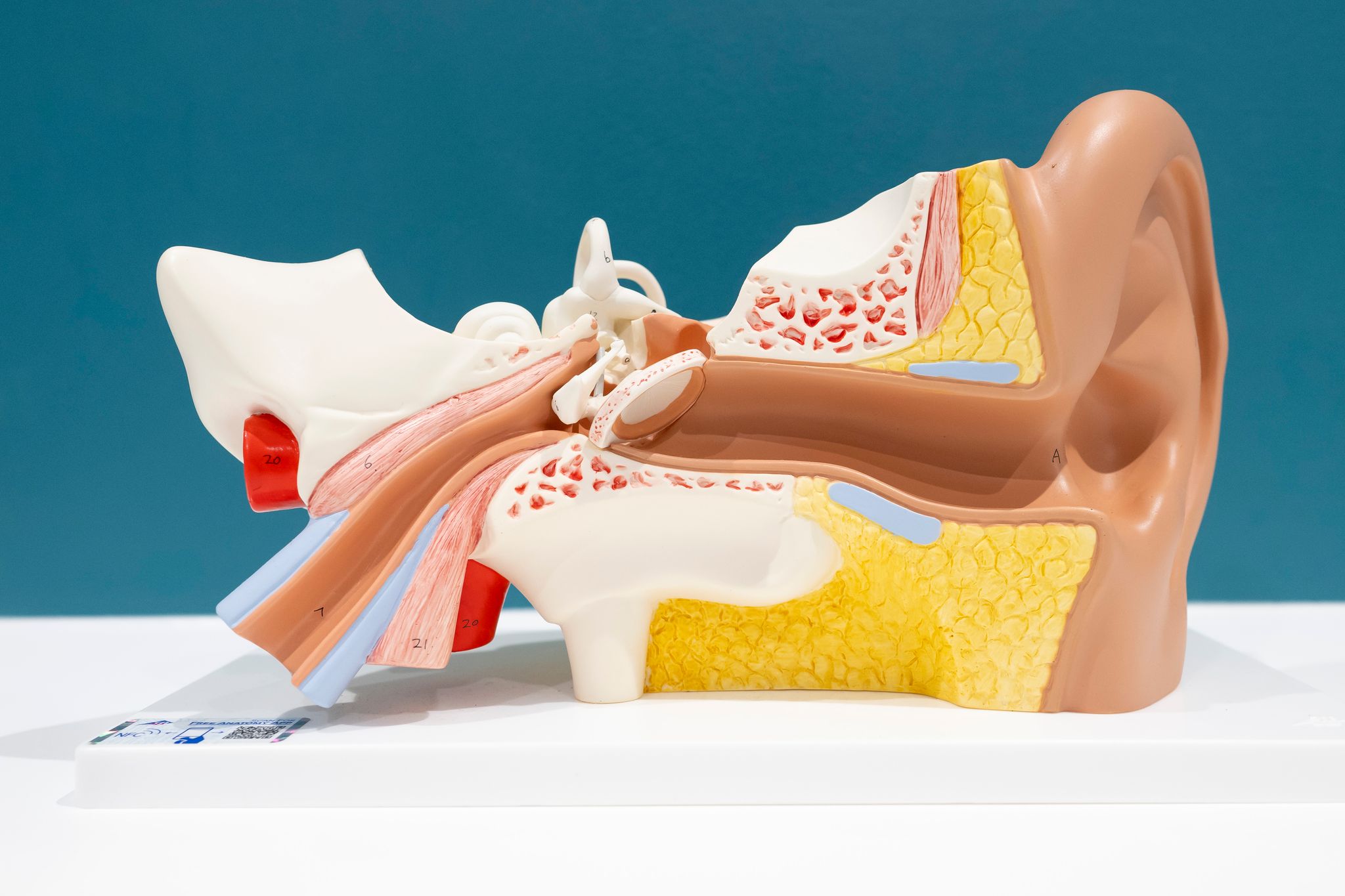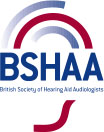Tinnitus Support

The most widely referred to definition of tinnitus is “the perception of sound in the ears and/or head with no external sound source” however some people do suffer from a type of tinnitus caused by noises from the body such as heart rate or pulse, known as pulsatile tinnitus.

Tinnitus is a very individual condition, from the way that it sounds to how often it is heard. Tinnitus is most commonly described as a ringing, whistling, hissing, buzzing or whooshing sound, but to some it may even sound like music or singing (musical tinnitus). It can be heard in one ear, both ears and or in the head or neck. Tinnitus can be constant and never go away or it can be intermittent or more noticeable at a particular time of the day; when going to bed or in a noisy environment for example.
Why do we get tinnitus?
It is important to understand that anyone can experience tinnitus; men and women, young and old. However, there are some known risk factors which mean that particular demographics are more susceptible. These factors include: those who are exposed to loud music, people working with machinery, people exposed to loud bangs, people who listen to their headphones as well as people with certain neurological disorders or illnesses.
Although we do not know the exact causes of tinnitus, we do know that certain factors can trigger the onset of tinnitus:
Hearing loss
Tinnitus is more common in those with hearing loss. The most common cause of hearing loss is age related damage to the delicate hairs and nerves in the inner ear. Additionally, noise related hearing loss due to factors mentioned above can have an effect. Very often, when the hearing loss is treated with a hearing aid or device, the tinnitus becomes much less noticeable.
Injuries, illnesses and infections
There are several injuries that can cause tinnitus. For example head and neck injuries such as whiplash or skull fractures. Additionally, many auditory factors such as ear infections, glue ear, Meniere’s disease, otosclerosis and perforated ear drum can cause tinnitus. Sometimes it may be as simple as a build up of ear wax that is causing the tinnitus.
Stress and anxiety
Though often not the cause of tinnitus, stressful or anxiety-inducing events can make tinnitus more noticeable. Traumatic events such as the loss of a loved one or severe stress in the workplace, are examples of this.
Medications
Certain medicines can cause tinnitus. If possible, stopping or changing the medication can stop the tinnitus. However, this is not always possible.
How to avoid getting tinnitus
Although anyone can get tinnitus, it is important to remember that the best way to prevent it is to look after your ears. This is particularly relevant in current times where earphones play a significant role in modern day life.
When thinking of sound protection, you not only need to be aware of loudness levels (general rule of thumb is anything over 85 Decibels becomes unsafe without protection) but you also need to be wary of sound exposure time. For example, a hand drill may not require protection if you are carrying out a quick 2 minute job at home, but if you use a hand drill all day at work then sound protection would be recommended.
Sound therapy
Many people say that their tinnitus is more noticeable in quieter environments. For this reason, sound therapy can be particularly helpful.
Sound therapy is the deliberate use of sound to reduce tinnitus awareness or reduce the stress associated with it. This is also referred to as sound enrichment.
Types of sound enrichment include
- The natural environment (opening a window for example)
- A CD, MP3 download or radio
- A smartphone app
- Bedside/tabletop generators
- A wearable sound generator
Although an excellent tool, research has found that sound therapy/enrichment is much less effective than counselling in terms of managing tinnitus so many people find it works best as an additional tool on top of other manageament techniques.
How can hearing aids help?
If there is a hearing loss, tinnitus can become more obvious. There are many explanations for this, but it is generally believed that when there is a hearing loss, external sounds become quieter and therefore the tinnitus in your head sounds louder. Therefore, by wearing a hearing aid and amplifying environmental sounds, the tinnitus is pushed to the background and becomes less noticeable.
For some, hearing aids are all they need to help with their tinnitus. Some hearing aids even have sound therapy built into them with a variety of sounds that are able to be played through the aids to help mask the tinnitus such as the ocean sound or white noise.
How can we help?
After a thorough initial assessment which includes a short hearing test, in-depth discussion about how tinnitus impacts your life, and questionnaire to address stress and anxieties, we will be able to create a detailed plan on helping you to move forward with your tinnitus.
For some, the reassurance of a hearing test with no loss and a conversation with someone who understands how they feel is enough and along with the excercises and handouts covered in the initial assessment, they are happy to continue their tinnitus journey alone.
For others it may be that the test has shown a significant hearing loss and a referral to one of our audiologists for a full hearing assessment is most appropriate. This is a free, no obligation assessment in which you can discuss the possibility of hearing aids which can also help your tinnitus.
For those who have no hearing loss, or who already wear hearing aids and still hear tinnitus, which is having a significant impact on day to day life, we can offer a personalised programme for therapy to help manage and live with your tinnitus.
These programmes can be very beneficial in light of recent studies that have concluded that there is a definite link between tinnitus and depressive symptoms, anxiety and sleep deprivation.
Solution focused Hypnotherapy for tinnitus
As a solution focused hypnotherapist (CPHT HND), our tinnitus specialist Jessica works with tinnitus clients whose tinnitus is causing high levels of stress and anxiety. This type of therapy helps clients to make significant, positive changes in their life which in turn enables them to manage their tinnitus more effectively. As a solution focused therapy, sessions focus on what the client wants to achieve or positively change, rather than on the problem itself. Jessica uses a powerful combination of psychotherapy (talking therapy) and hypnosis to reduce anxiety, done very simply through relaxation and visualisation, allowing the client to focus on the positive aspects of their lives. The results are quite often outstanding.
CBT for tinnitus
Developed by Dr Hashir Aazh, one of the leading practitioners in tinnitus in the UK, this method provides a specialist rehabilitation programme for adults and children experiencing tinnitus, hyperacusis and misophonia using Cognitive Behaviour Therapy (CBT) tools. It consists of a minimum of 6 sessions which seek to gain a deeper understanding into the clients’s tinnitus, its triggers and why it is impacting the life of the individual so much. Then through a combination of face to face sessions and homework, tasks are set to build up resilience and acceptance of tinnitus and coping strategies are developed that the client can use moving forward.
Jessica has received her ‘Certificate for Specialised Rehabilitation Programme for Management of Tinnitus Based on CBT’ for completing Dr Hashir’s tinnitus masterclass course.







